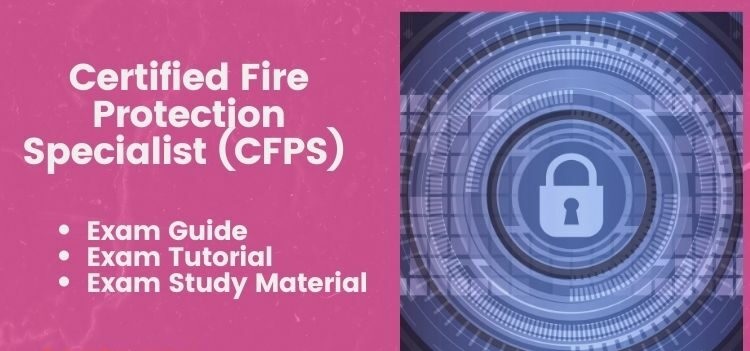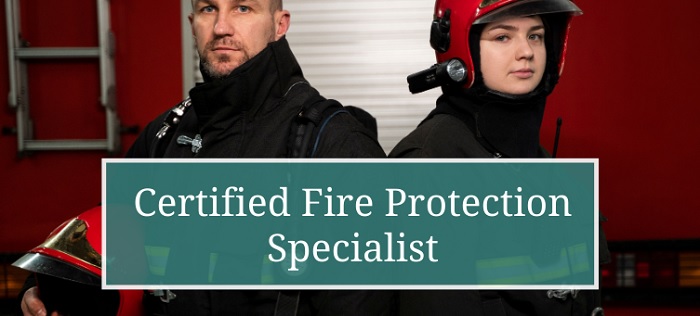Table of Contents
- The Challenges of Being a Certified Fire Protection Specialist
- The Knowledge and Skills Required to Become a Certified Fire Protection Specialist
- Successful Strategies for Improving Your Fire Protection Skills
- What to Expect When Working as a Certified Fire Protection Specialist
Being a certified fire protection specialist is an important and rewarding job that can help save lives and property. Fire protection specialists are responsible for designing, inspecting, and maintaining fire protection systems in a variety of buildings, from schools to hospitals to malls. They must also be knowledgeable about fire codes and regulations, as well as the best practices for fire safety. Certified fire protection specialists have the knowledge and skills to help protect people and property from the devastating effects of fire. Not only is it a valuable job, but it can also be a lucrative and rewarding career.
The Benefits of Becoming a Certified Fire Protection Specialist
The benefits of becoming a Certified Fire Protection Specialist (CFPS) are many. As a CFPS, you can demonstrate to employers that you possess the knowledge and skills required to become a successful fire protection specialist. Furthermore, certification may provide increased job opportunities and higher salaries than non-certified professionals. The CFPS certification program is a two-day seminar and examination that covers the basics of fire protection systems, building codes, fire protection equipment, and other related topics. Upon successful completion of the exam, you will be awarded the CFPS designation. This certification is widely recognized in the fire protection industry and provides an immediate return on investment. By becoming a CFPS, you will gain a comprehensive understanding of fire protection systems and how to best protect lives and property from the dangers of fire.
You will be able to recognize potential fire hazards and develop plans to prevent and mitigate the effects of a fire. Your knowledge of fire safety practices will provide you with the ability to assess buildings and systems to ensure their compliance with fire protection codes. In addition to the knowledge gained through the certification program, you will also become part of a network of certified professionals who have the same education and training. This network can provide you with valuable resources, advice, and support as you embark on your career in fire protection.
Finally, becoming a CFPS offers the potential for career advancement. With the right experience and qualifications, you may be able to obtain higher-level positions or move into management roles. In addition, CFPS certification may qualify you for special discounts on insurance premiums and other benefits. In summary, becoming a Certified Fire Protection Specialist provides an array of benefits, including increased job opportunities and higher salaries, knowledge and understanding of fire protection systems, access to a network of certified professionals, and potential for career advancement. If you are considering a career in fire protection, becoming a CFPS is an essential step.
The Challenges of Being a Certified Fire Protection Specialist
Being a Certified Fire Protection Specialist (CFPS) is an important and challenging task. It requires a great deal of knowledge and expertise to ensure that buildings and other structures are safe from the risks of fire. As a CFPS, it is your responsibility to ensure that the safety measures and codes that are in place are followed and that all building components are properly maintained. The primary challenge that a CFPS faces is staying up to date on the latest fire protection codes and regulations. As a CFPS, you are required to keep abreast of the latest developments in fire safety.
This includes the latest building codes, fire codes, and safety regulations. You must also be knowledgeable in the design and installation of fire safety systems, including fire alarms, fire suppression systems, and other related equipment. Another challenge that a CFPS faces is ensuring that all buildings and structures adhere to the fire protection codes. This involves evaluating the building components, such as walls, floors, roofs, and other areas, and ensuring that they meet the necessary safety requirements. This also requires conducting regular inspections and evaluations to ensure that the building or structure is meeting the standards set forth by the fire protection codes.
Finally, a CFPS must be able to recognize potential fire hazards and take the necessary steps to reduce the risk of a fire occurring. This includes inspecting the building for potential combustible materials, checking for faulty wiring or plumbing, and ensuring that all equipment is in proper working order. Being a CFPS is an important and rewarding job that requires dedication and knowledge. By remaining up to date on the latest fire protection codes and regulations, and taking proactive measures to reduce the risk of a fire occurring, you can help ensure the safety of everyone in the building or structure.
The Knowledge and Skills Required to Become a Certified Fire Protection Specialist
Becoming a Certified Fire Protection Specialist (CFPS) requires a combination of knowledge and skills. The CFPS certification is issued by the National Fire Protection Association (NFPA). It demonstrates a level of proficiency in fire protection engineering and related fields. Knowledge Requirements In order to become a CFPS, applicants must demonstrate a broad base of knowledge related to fire protection engineering, code enforcement, and fire prevention. This includes topics such as fire dynamics, fire behavior, fire protection systems, building construction, and emergency management. Applicants must also understand the NFPA codes and standards as well as relevant state and local codes.
In addition, they should demonstrate knowledge of risk assessment, fire investigations, and building fire safety systems design. Skills Requirements In addition to a broad base of knowledge, applicants for the CFPS certification must demonstrate certain skills. These include the ability to apply fire protection concepts, analyze data, and evaluate the effectiveness of fire safety systems. They must also possess the ability to communicate effectively and provide oral and written reports. CFPS applicants should also demonstrate strong problem-solving and decision-making skills as well as organizational and project management skills.
To become a CFPS, applicants must pass an exam administered by the NFPA. The exam consists of 100 multiple-choice questions and is designed to assess the knowledge and skills required for the certification. To maintain the certification, CFPS professionals must complete 24 hours of continuing education units (CEUs) every three years. Overall, the CFPS certification demonstrates a comprehensive understanding of fire protection engineering and related fields. It requires a combination of knowledge and skills, which can be developed through study and practice.

Successful Strategies for Improving Your Fire Protection Skills
1. Take Fire Protection Courses: Taking fire protection courses is an excellent way to increase your knowledge and skills in the field. There are a variety of courses available, ranging from basic fire safety to advanced fire engineering. By taking courses, you can gain an understanding of codes and regulations, as well as the technical aspects of fire protection.
2. Participate in Fire Drills: Participating in fire drills is an effective way to practice your fire protection skills. Fire drills help you become familiar with the proper procedures and protocols for responding to a fire. By participating in drills, you can also gain valuable experience in working with fire extinguishers and hoses, as well as other fire protection equipment.
3. Attend Fire Protection Conferences: Attending fire protection conferences is a great way to stay up to date with the latest developments and trends in the field. Conferences provide an opportunity to meet professionals in the industry and learn from their experiences. Attending conferences can also help you network with potential employers and gain valuable insights into the fire protection industry.
4. Join Professional Organizations: Joining professional organizations such as the National Fire Protection Association (NFPA) can help you gain access to valuable resources and information. Members of the NFPA can take advantage of a variety of benefits, including training courses, publications, discounts, and more.
5. Participate in Hands-On Training: Participating in hands-on training is an excellent way to gain practical experience in fire protection. Hands-on training can help you become comfortable with the equipment and processes involved in fire protection, and give you the confidence to respond effectively in the event of a fire. By taking these steps, you can improve your fire protection skills and develop the knowledge and experience necessary for a successful career in the industry.
What to Expect When Working as a Certified Fire Protection Specialist
Working as a certified fire protection specialist is a career that requires a great deal of knowledge, skill, and dedication. This type of specialist helps protect people, property, and the environment from the hazard of fire. In this role, you will be responsible for the design, installation, inspection, testing, and maintenance of fire protection systems. When working as a certified fire protection specialist, you can expect to be involved in a wide range of activities. These activities may include:
- Researching and assessing fire protection needs
- Developing and implementing fire protection plans
- Designing and installing fire protection systems
- Inspecting and testing existing fire protection systems
- Upgrading and maintaining fire protection systems
- Resolving technical issues with fire protection systems
- Training personnel on fire protection systems
- Ensuring compliance with fire protection regulations.
You will also be expected to keep up to date with the latest developments in fire protection technology and regulatory requirements. To do this, you may need to attend seminars, workshops, and conferences. As a certified fire protection specialist, you will need to possess excellent communication and problem-solving skills in order to be successful. You must also have a good understanding of building codes and regulations, as well as engineering principles. It is also important to have strong customer service and organizational skills. By working as a certified fire protection specialist, you can help ensure people, property, and the environment are protected from the danger of fire.
Final Thought!
Being a certified fire protection specialist can be a rewarding and beneficial career choice. Not only can it provide financial security, but it can also provide job satisfaction from knowing that you are helping to protect people and property from the dangers of fire. With the right training and experience, a certified fire protection specialist can bring a great deal of value to any organization or business.
